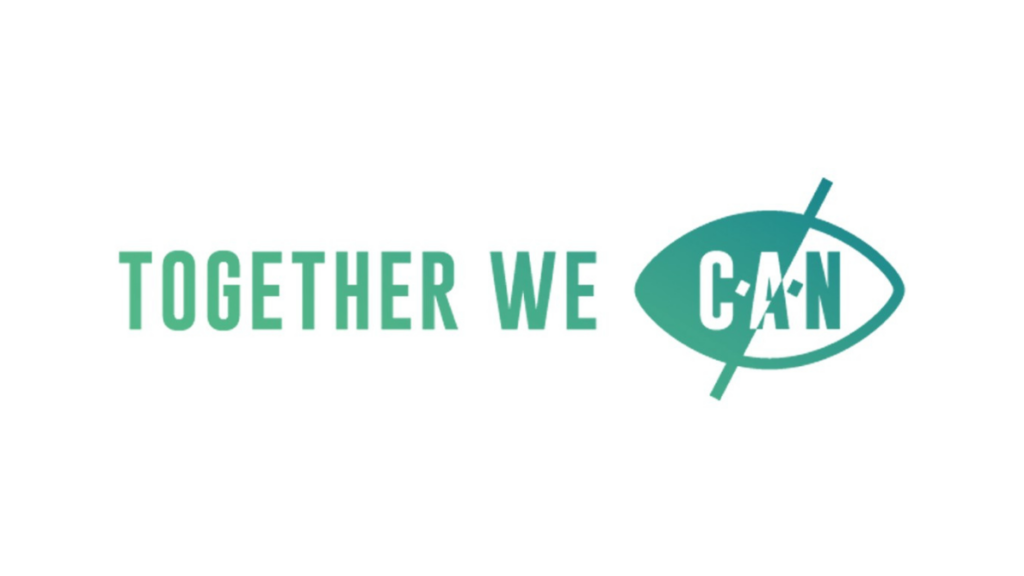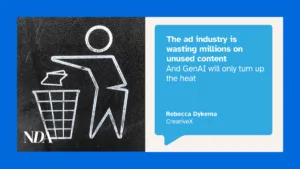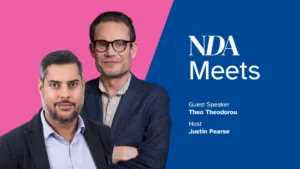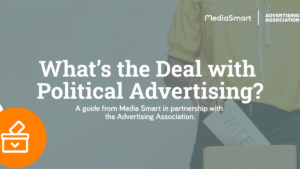By Harriet Kingaby and Jake Dubbins, Co-Founders of The Conscious Advertising Network
In the world of conscious advertising, there’s an ongoing battle. On one hand, we’re committed defenders of the commercial desire for (and opportunity created by), better spending of media budgets. On the other, we’re painted as ‘woke’ activists, hampering freedom of speech and creating censorship. In light of recent allegations, we want to set the record straight and show that conscious advertising stands strong for freedom of speech, diversity of opinion, and human rights.
The Conscious Advertising Network’s mission is clear – to create a safe, inclusive and commercially viable information ecosystem for advertisers and wider society that supports quality journalism and content, diversity of media and scientific consensus. Over the years, we’ve uncovered shocking instances of big brands inadvertently funding harmful content, such as paedophile groups, incitement to violence, extreme racism, and climate change denial. We seek to address these issues responsibly, fostering constructive dialogues with advertisers, agencies, media owners, and platforms to create a more conscious and ethical advertising ecosystem. Our goal is to solve these problems – we don’t call organisations out publicly and never will unless it’s the very last straw.
We have never called for boycotts of any media outlet or platform.
CAN firmly believes in a free market, where advertisers have the freedom to choose where their ads go, based on their values, commercial objectives, and commitments to environmental sustainability. Advertisers should not be compelled to promote extreme content or misinformation. We should have the freedom to make informed decisions guided by available evidence. Hard data unequivocally demonstrates that allocating advertisements to premium content resonating with diverse audiences yields significantly superior outcomes relative to lower-quality environments. Why would we not seize this opportunity for better results?
Attempts to link advertising to the recent Coutts banking issues are also misguided. Every individual in the UK has a right to a basic bank account, facilitating their ability to manage payments and finances. Advertising revenue is not a right: it is a privilege granted to content creators. Brands have the discretion to withhold advertising revenue from harmful or offensive content to avoid unintentional legitimisation, reputational damage or funding of such material. This approach is vital in promoting a responsible and ethical information ecosystem and maintaining corporate freedoms. To claim otherwise is to deny that brand safety is important and that corporate entities have the right to make choices which benefit them.
In short, freedom of expression is a vital human right, but it must be balanced with all other human rights. Advertising revenue is a privilege.
We make this point because individuals and organisations defending our collective human rights are being harassed. Some of our civil society members have been subjected to racism, physical threats, or worse. Many represent communities affected by the soaring hate crime statistics. For them, it is not just about freedom of speech, but the wider issues of freedom of expression and freedom from harm that we must fight for.
The result of advertisers thinking consciously about their media spend is greater freedom of speech for more groups, with fewer bad actors and less harm. This is evidenced by our hate speech manifesto, developed in partnership with the UN Office of the High Commissioner for Human Rights, advertisers and multiple anti-hate charities. It signposts to UN protocols developed by experienced lawyers, social anthropologists and development experts which demonstrate exactly how to identify hate speech, while still ensuring freedom of expression. To claim otherwise is to deliberately understand what we do.
By nurturing a healthy information ecosystem, CAN supports an inclusive media environment. Perhaps something these organisations fear. One where the voices of diverse communities can flourish, and pluralistic, quality journalism is supported. This approach is pivotal in shaping an information ecosystem that thrives on openness, transparency, and inclusivity: not on fear, bullying and gatekeeping.
Let’s also be crystal clear on allegations that we are activists tied to Stop Funding Hate: CAN is an independent entity. Our core principles are rooted in the exact same issues being discussed by the Government’s own Online Safety Bill: children’s wellbeing; hate speech; mis and disinformation; informed consent; ad fraud; sustainability & climate; and diversity, equality & inclusion. Stop Funding Hate are members of ours, and helped shape one of our original six manifestos alongside 22 other organisations – a cohort of advertisers, agencies and civil society groups. Our most recent Climate & Sustainability manifesto was similarly drafted by a group of 6 advertisers, agencies and civil society with no input from Stop Funding Hate.
Our funders have also been attacked, for taking money from a hedge fund using an algorithmic model also used by the owners of one of the media outlets which accuses us of hypocrisy. For clarity, our relationship is with Quadrature Climate Foundation, not Quadrature Capital. We have never spoken to or dealt with anyone at Quadrature Capital. Quadrature Climate Foundation is a UK charity and we have found no evidence that the charity is linked to fossil fuels or human rights abuses. We’re reviewing our due diligence processes and talking with our funders, but our understanding is that QCL’s investment strategy is fully transparent and based on algorithmic trading. Stocks are not held or actively picked.
Over the last week, we have had to spend our weekends and evenings away from family, dealing with unfounded allegations, hacked social media accounts, and abusive emails. This is just the start of the dirty tricks accompanying the culture wars that will inevitably surround the 2024 election. We are taking legal advice and will continue to update on the situation.
In conclusion, CAN empowers advertisers with informed decisions that lead to a better quality, and diverse information ecosystem. One which enhances our collective ability to do business and debate today’s important issues. Let’s work together to build a society where conscious advertising and genuine freedom of speech coexist harmoniously.









